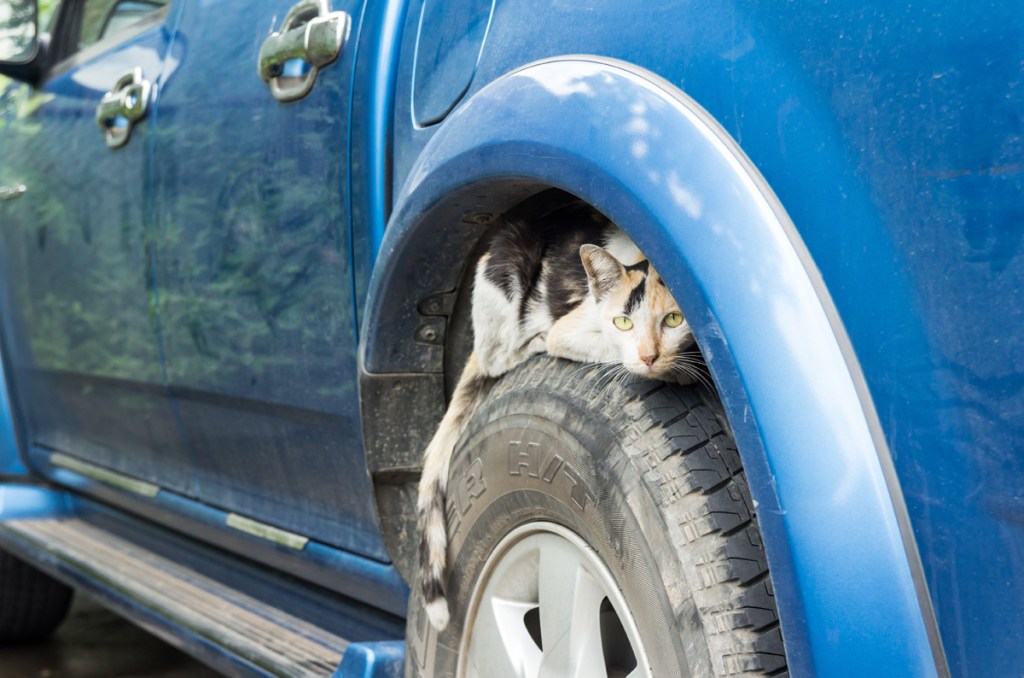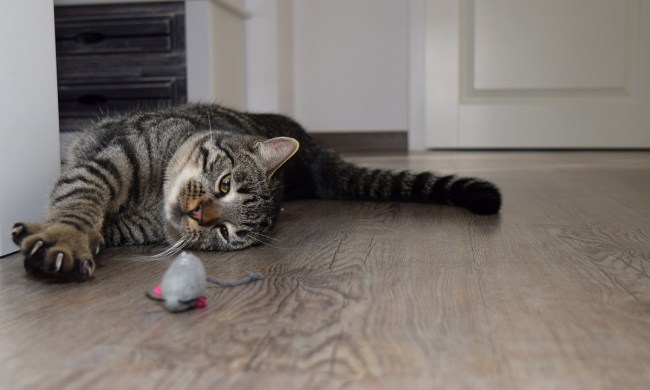Overdrive was only a 2-month-old kitten when he hid inside the engine compartment of a car parked at a rest stop in Arizona. The unsuspecting tourists who owned the car were alarmed when 200 miles later, they stopped at a restaurant in Utah and heard desperate meows coming from under the hood of their car. The tiny buff-colored tabby was successfully rescued and taken to the nearby Best Friends Animal Sanctuary. Although traumatized by the experience, he miraculously didn’t sustain any injuries. He’s just one of numerous cats in car engines that have survived.
Every year, there are stories of cats getting trapped in vehicle engine compartments. Once a car engine starts, things can quickly take a turn for the worse for a cat hiding under the hood, say veterinary experts at the Chastain Veterinary Medical Group in Texas. The sudden vibration and roar of the car’s engine can cause a stowaway cat to jump or fall into the fan or fan belt and pulleys. The results are often disastrous for the cat, causing trauma, lacerations, and on occasion, death.
A March 2021 Wigan Today article reported that a cat became stuck in an engine’s camshaft when the car was turned on. Firefighters had to cut the cat from the engine, and he lost his tail and a leg. People magazine recounted the story of Cindy Lou, a 2-year-old Maine Coon who climbed inside the engine compartment of a car in December 2020. She was wedged between two hot metal plates near the fan belts, and part of her fused skin had to be removed to rescue her.
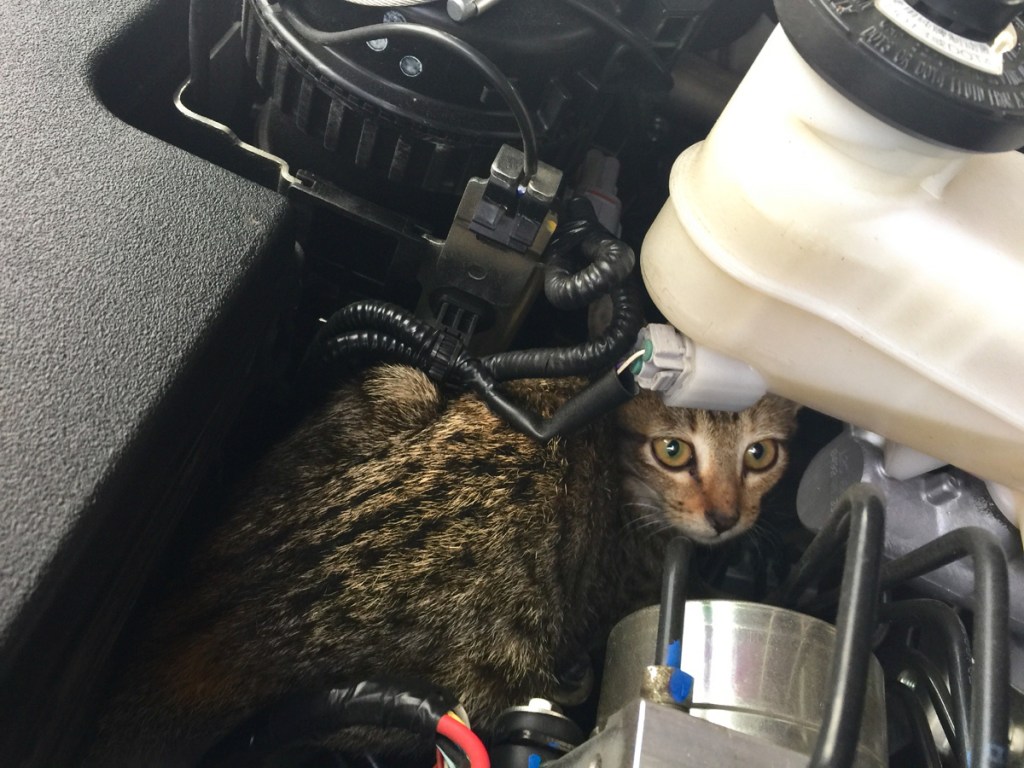
Why do cats hide in car engines?
According to experts at Embrace Pet Insurance, cats and kittens, especially strays, will seek out shelter in colder months and are frequently attracted to the warmth of engines in recently driven cars. When cars are left on streets, driveways, or even easily accessible garages, cats will often sit between the engine and the hood, which provides relief from harsh weather or protection from predators. Animal behaviorists say cats are also attracted to a vehicle’s engine bay because it offers a dark, quiet place to nap.
You would think that if a cat could climb inside the engine compartment of a car, he would also be able to find his way out. However, when frightened or startled, cats may squeeze into even tighter spaces and end up trapped. If you discover a cat in this situation, call the local police or fire department for help. It’s not unusual for a mechanic to be called in to assist in freeing trapped cats from under car hoods.
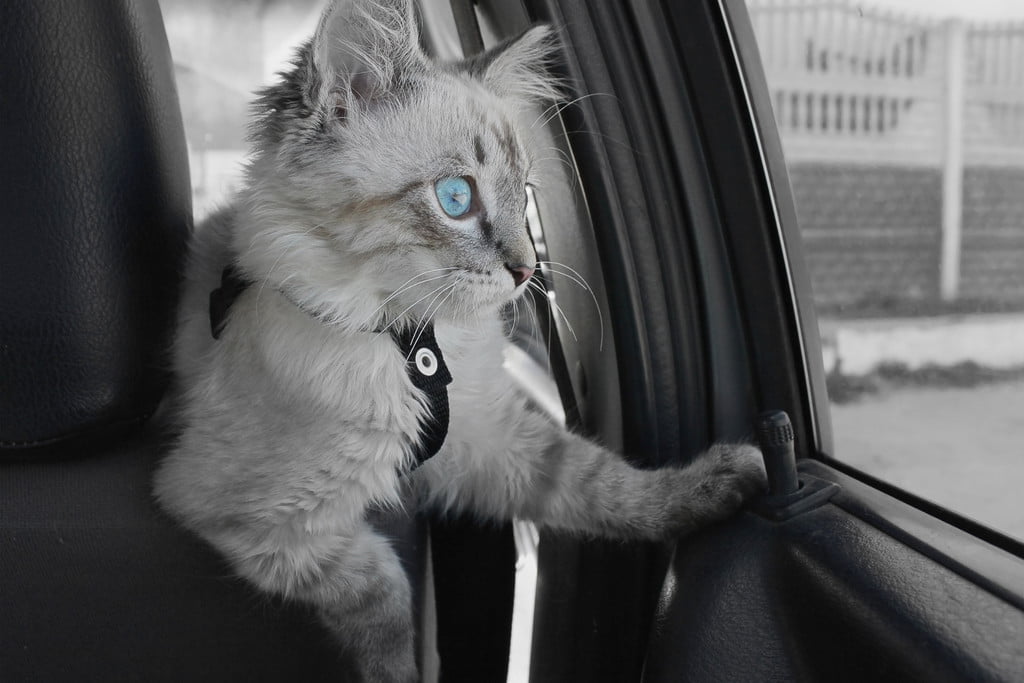
How can I prevent my cat from climbing into a car engine?
The best way to keep your cat from climbing into a car engine is to prevent him from roaming free. Experts at the Humane Society of the United States say indoor cats live longer and tend to be healthier. In addition, keeping your pet as an inside kitty prevents predators, injuries, parasites, and communicable diseases from the great outdoors. If you live with a cat who’s always asking to go out, access to a patio or a walk around the neighborhood in a harness and leash can give him a safe way to hang outside.
If your cat is allowed out, here are tips to keep him away from your car’s engine:
- Whenever possible, park your car inside an enclosed garage.
- Place a high-quality car cover over your vehicle to help keep your cat from getting to the engine compartment.
- Sprinkle cayenne pepper on the ground around your car. It may take a few days, but cayenne pepper has worked to keep cats away from cars.
- Try a commercial spray such as Nature’s Mace Cat Repellent. Like cayenne pepper, this deterrent can be sprayed around the car to keep cats away.
- Use a motion sensor alarm such as the Tattle Tale Sonic Pet Training Vibration Alarm to discourage your cat from going under the hood of your car.
Keep in mind that while you can take steps to deter your cat from climbing into the engine compartment of your car, he can still hide under the hood of a vehicle in the neighborhood. That’s what happened to Simon, a big orange tabby featured in a KCRA 3 story. He went for a 13-mile ride before the driver realized there was a cat stuck in the engine block. Luckily, Simon wasn’t injured, and thanks to his microchip, was safely reunited with his family.
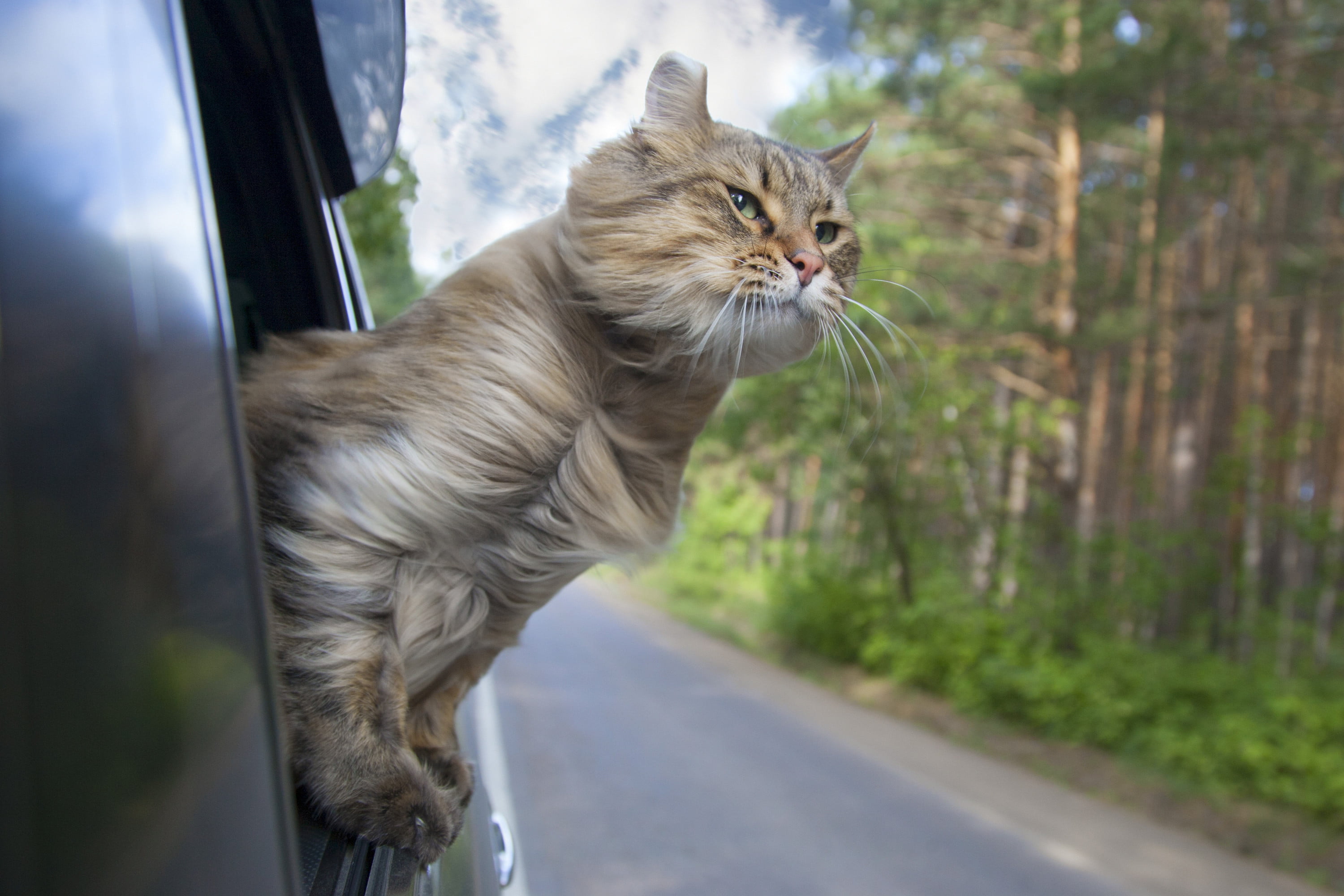
How do I know if my cat is in my car engine?
Overall, you’ll probably have the best luck by implementing preventative measures and then trying to scare off any especially clever cats who make it into the engine, anyway. If you find a repeat offender every morning, you can also put in other deterrents to the general area. Consider speaking to his owner too and coming up with a join solution. The steps here will only take a few minutes and can save a cat’s life.
